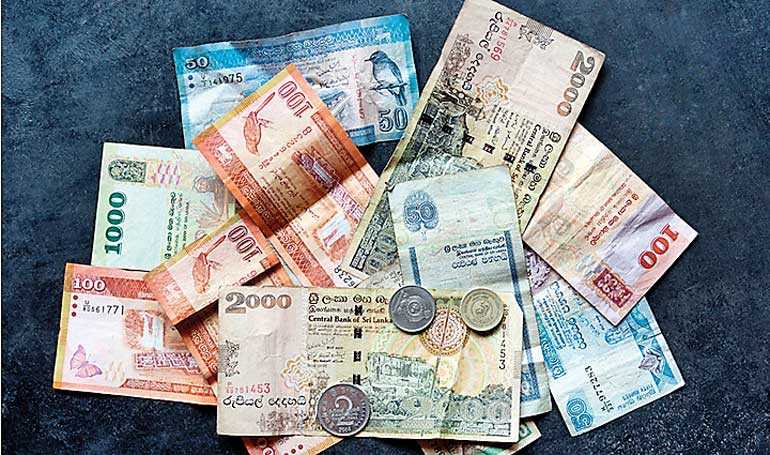Thursday Nov 14, 2024
Thursday Nov 14, 2024
Tuesday, 25 December 2018 00:00 - - {{hitsCtrl.values.hits}}

The rupee hit an all-time low of 181.67 to the dollar
REUTERS: The Sri Lankan rupee fell to a record low on Monday due to continued outflows of foreign funds from bonds and stocks as political uncertainty dented investor sentiment.
The rupee hit an all-time low of 181.67 to the dollar in early trade, surpassing its previous record of 181.25 marked in the previous session. It has weakened about 4.7% since the political crisis began. The currency dropped 1.8% in November, and has lost 18.2% this year.
Sri Lankan President Maithripala Sirisena appointed a 30-member Cabinet on Thursday, retaining control over the Police while they investigate an alleged plot to kill him that triggered a row with the Premier and led to a lengthy political crisis.
The political crisis was expected to ease after Sirisena reinstated Ranil Wickremesinghe, whom he had ousted in October. The country plunged into a 51-day crisis following the ouster. However, a delay in appointing Cabinet Ministers dented sentiment, dealers said.
Political paralysis remained the main concern for investors since Sirisena abruptly sacked Wickremesinghe and replaced him with Mahinda Rajapaksa, who failed to win a Parliamentary majority and resigned on 15 December as a Government shutdown loomed.
Sri Lanka’s Parliament passed a Rs. 1.77 trillion ($9.39 billion) Vote on Account on Friday, to meet the expenditures of the first four months of 2019 and avert a Government shutdown from 1 January.
Wickremesinghe was sworn in as Sri Lanka’s Prime Minister on 16 December, making a remarkable comeback weeks after being ousted by Sirisena under controversial circumstances. The Sri Lankan rupee strengthened early last week, while bond yields dropped as the political crisis appeared to ebb, but investors took a cautious stance to observe whether Sirisena and Wickremesinghe could work well together.
Foreigners were net sellers of Rs. 5.6 million ($30,888.03) worth of stocks on Monday. They have been net sellers of Rs. 13.7 billion since the political crisis began on 26 October. The bond market saw outflows of about Rs. 56.7 billion between 25 October and 19 December, Central Bank data showed.
The rupee ended at 181.50/70 per dollar, compared with 181.30/50 in the previous session. Credit rating agencies Fitch and S&P downgraded Sri Lanka’s sovereign rating early December, citing refinancing risks and an uncertain policy outlook, after Sirisena’s sacking of his Prime Minister in October triggered the political crisis.
This year, there have been Rs. 23.1 billion of outflows from stocks and Rs. 148.9 billion from Government securities, the latest data from the Bourse and Central Bank showed.
Moody’s downgraded Sri Lanka on 20 November for the first time since it started rating the country in 2010.
Five-year Government bond yields have risen 22 basis points since the political crisis began, while yields on Sri Lanka’s dollar bonds due in 2022, which have risen around one percentage point to 8.0% through Dec. 14, fell 0.42% to 7.6% on Monday.
The Colombo stock index ended 0.32% firmer at 6,025.12 on Monday. Turnover was Rs. 326.2 million, well below this year’s daily average of Rs. 841 million.